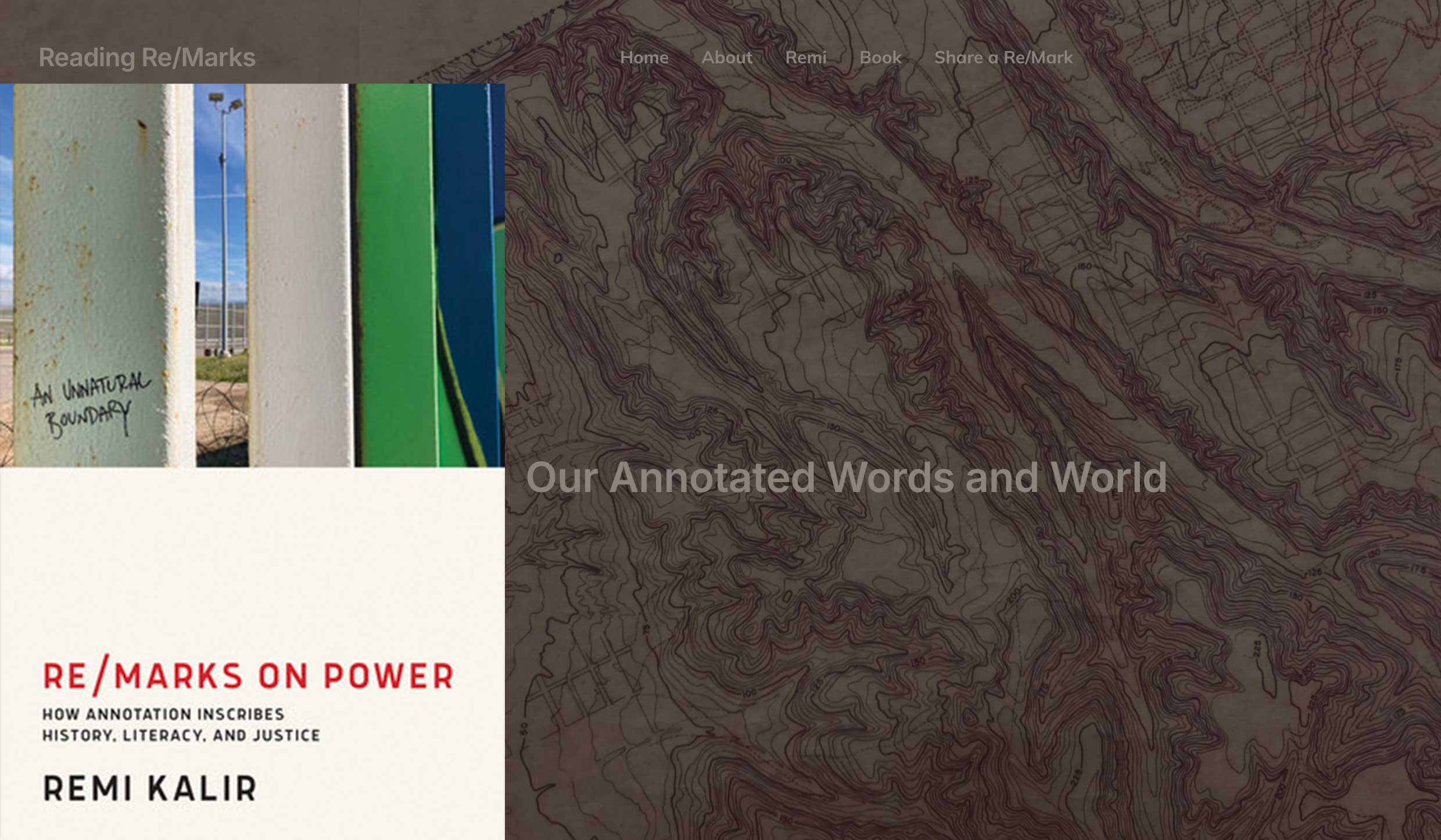Scholar and educator Remi Kalir @remikalir already literally co-authored The Book on Annotation on which we have enjoyed having as a guest on OEG Voices Episode 26
as well as helping with our efforts to annotate the UNESCO OER Recommendation. He has upped the annotation more in a new book.
I’m fortunate to have known Remi for a long time-- It’s been a while since we spoke, and I have learned he is currently now based at Duke University as the Associate Director of Faculty Development and Applied Research with Learning Innovation and Lifetime Educationa s well as Associate Director of the Center for Applied Research and Design in Transformative Education.
But more than that, he was shared his new book, which expands the act of annotation out of the written world into the physical one. And Re/Marks on Power: How Annotation Inscribes History, Literacy, and Justice has been published open access on MIT Press Direct.
Annotation—the seemingly simple act of marking a text—is often diminished as a marginal practice. It is prohibited in physical objects and considered irrelevant to social and political concerns. But what if annotation were reimagined as a critical and civic literacy that can inscribe public memory, struggles for justice, and social change? In Re/Marks on Power, education researcher Remi Kalir argues that enduring traces of annotation can be read and (re)written to advance counternarratives and more just social futures. Kalir’s interdisciplinary approach examines annotation in archives and libraries, on walls and in books, atop maps and monuments, and along byways and all manner of margins to describe the relevance of “re/marks.”
With a series of vivid and wide-ranging cases, Kalir describes how groups of annotators make public re/marks of resistance and creativity, often with simple tools and accessible methods. These annotations alter familiar texts, oppose hateful ideology, and broadcast solidarity and social activism. Among the book’s fresh reads of annotation are considerations of how Harriet Tubman’s legacy is remembered and honored, how the US-Mexico border was defined and is restoried, how problematic public monuments are contested and reimagined, and how books featuring LGBTQIA+ topics are classified, censored, and celebrated. Re/Marks on Power honors the actions of annotators, whether eminent or anonymous, and highlights how material traces have mediated justice-oriented possibility. Throughout this book, the author makes visible a new social language of annotation that can be read across time and texts.
For having grown up in Maryland, in just a skim of the online pages of Re/Marks I am embarrassed to admit I never knew Harriet Tubman was born into slavery on its Eastern Shore, nor did I know that a statue in her honor sits in Cambridge, a town I knew only from driving through.
This was easy enough for me to justify ordering the book, so I can annotate my own copy. I leave it you to read about the powerful meaning of the cover image.
Kudos again to Remi for publishing his book under as CC license. I also was excited to see his companion web site, Reading Re/Marks that includes what looks like a series of calls to readers to share re/marks e.g. examples of annotation-- the first is based on sharing examples of annotated stop signs.
I share this for many reasons, among which is a desire to poll for interest in perhaps organizing some kind of read. / annotate along with the book, share ideas and thoughts here in OEG Connect, maybe participate in the sharing of re/marks. I’m pretty sure I can arm twist Remi into getting us going on some re/marking activity.
